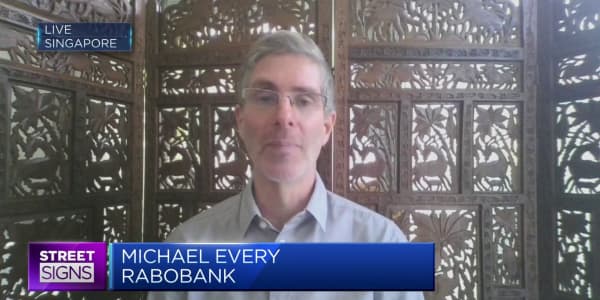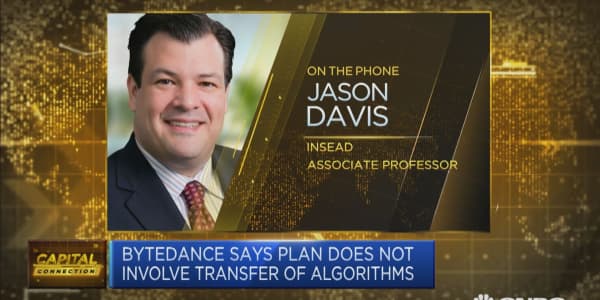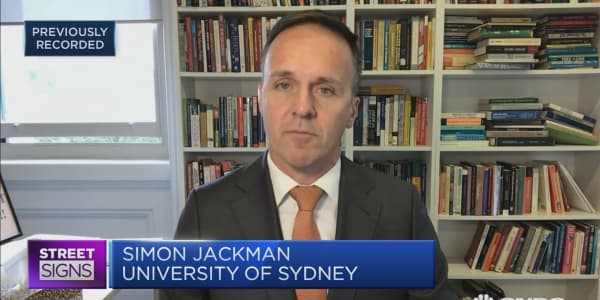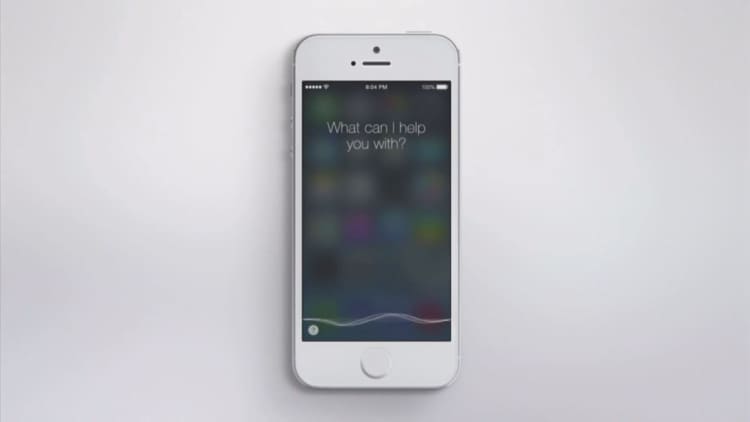
If President-elect Donald Trump stays true to his word, Apple should hope that a big wad of extra cash can help compensate for what are likely to become big fights with the new administration over trade, encryption and immigration.
Even though Apple would benefit immensely from Trump's proposed tax reform, the president-elect's stance on trade with China, his immigration-hawk attorney general, and his cybersecurity appointees could pose threats to America's wealthiest company, industry watchers said.
"The Trump impact could have a double-edged sword impact on technology stalwarts such as Apple," said Daniel Ives, senior vice president of finance and corporate development at mobile cloud maker Synchronoss Technologies, who covered the company on Wall Street for years.
"On one hand, potential corporate tax cuts under Trump could have a major positive impact given Apple's massive tax burden and ongoing challenges," Ives said. "However, if Trump walks the walk on the China tariff issues, this would have a very negative impact on production costs."
Trump's victory comes at a time when Apple and the government are more intertwined than ever. Under CEO Tim Cook, Apple has spent about 3½ times more on lobbying than when co-founder Steve Jobs led the company, according to data collected by the Center for Responsive Politics.
Taxes
Apple is a clear-cut winner from Trump's offshore tax plan, according to Bernstein analyst Toni Sacconaghi, since it has both a high tax rate and a huge offshore cash balance.
With a 26 percent tax rate and $216 billion stored offshore, Apple would benefit from Trump's proposals to lower the business tax rate to 15 percent and allow the one-time repatriation of corporate profits held offshore at a tax rate of 10 percent, Sacconaghi wrote in a research note.
Overall, the technology sector has one of the lowest average tax rates in the S&P 500, at 20.9 percent, making Apple's tax rate relatively high, Sacconaghi wrote.
"The upshot is that Apple will get both a meaningful earnings boost from a potentially lower tax rate, and has the potential to repatriate 37 percent of its market cap in offshore cash, which is the second highest percentage among the top 25 tech companies," Sacconaghi wrote.
A year ago, Cook told CBS' "60 Minutes" he would "love to" repatriate Apple's overseas cash, but he thought the 40 percent tax rate was unreasonable, backward and awful. In the interim, he's faced what he's called "political crap" abroad, including a more than $14 billion tax bill from the European Commission.
China
Perhaps the most high-profile effect of Trump's election on Apple has been a backlash from China, after a state-backed newspaper warned that "iPhone sales in China will suffer a setback" if Trump carried out his promised 45 percent tariffs on trade.
Apple's supplier dossier lists about 350 addresses in China, where some of its most high-profile partners, like Foxconn, are located. China is also key to the company's promise to return to growth next year.
Our company is open to all, and we celebrate the diversity of our team here in the United States and around the world.Tim CookApple CEO
On top of that, Trump has vowed to shred the Trans-Pacific Partnership, a proposed trade agreement that the Internet Association has said is "a move in the right direction" for technology companies.
Adams Lee, an international trade lawyer at Harris Moure, said Trump may have overextended what he can do under the law. While there is some executive authority for emergency tariffs, they are targeted and specific. Lee said Apple could argue that such targeting was an abuse of executive authority.
Even without Trump's new policies, Apple has challenges in China. Jinjin Wang, Asia Telecom analyst, told UBS that domestic brands are softening demand for iPhones there. Revenue fell 30 percent from a year ago in the fourth quarter in Greater China, Apple's third-biggest market behind Europe and the U.S.
Nikkei Asian Review reported that Apple may explore production in the United States, citing a source. Still, Cook is renowned for his ability to secure Apple's supply chain — and find the best talent around the world — in even the most challenging circumstances.
Encryption
The case for strong encryption is one of Apple's most impassioned stances — and one Trump has decried. While much of his key law enforcement staff are pro-surveillance, it's not clear whether Apple will face the blowback Trump promised.
Trump called for a boycott of Apple products earlier this year, after Apple refused to comply with a court order to de-encrypt a terrorists' iPhone for the FBI. Trump's pick for Attorney General, Jeff Sessions, also argued that government must have access to the phone, saying it was "a more serious issue than Tim Cook understands."'
Others within Trump's new administration are more tempered on the issue.
Rep. Mike Pompeo, nominated for new CIA director, has called the use of strong encryption in personal communications a "red flag" — though he also said that a backdoor mandate would do little good. Michael Flynn, tapped as national security adviser, supported the Digital Security Commission Act, whose sponsors supported a commission to examine cases like Apple's.
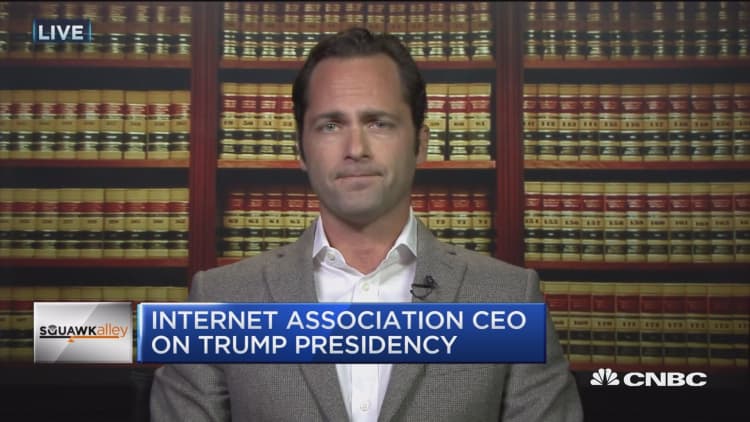
While the president may set the tone for an administration's take on encryption, even the Obama administration had independent agencies advocating on both sides of the issue, said Sophia Cope, a staff attorney on the Electronic Frontier Foundation.
"No one knows what the heck that Trump is going to do," Cope said. "To the extent that he feels that weakening encryption is an important policy goal for him, he's going to find a way to do that. Senators [Dianne] Feinstein and [Richard] Burr had proposed an encryption bill. He could find supporters in Congress to outline legislation that would find back doors. .... A lot of people would fight that. We would fight that. Even in the case of a statute passed by Congress, there are avenues of legal challenge."
Immigration
If Trump's wavering campaign rhetoric is any indication, it's still unclear if Apple's immigrant-heavy workforce will face more scrutiny during his presidency. But Sessions' views indicate that Apple may have to fight to protect foreign workers.
As The Wall Street Journal points out, there's no longer mention of visas for highly skilled foreign workers — H1-B visas — on Trump's website, after the candidate made conflicting remarks on his support for the program. But there's no mincing words from Sessions, who as attorney general would help enforce immigration law:
"We need to create jobs for Americans first before we bring in foreign workers to take those jobs," Sessions testified in 2014.
Apple was among the top 10 employers of the H-1B temporary program, holding nearly 2 percent, or about 23,000, of the certified employees this fiscal year, according to the Department of Labor website. Technologists are by far the most popular category for this type of visa.
While Cook hasn't made direct comments about the issue, Alphabet's Eric Schmidt has defended the use of foreign labor and called for reform of the program, arguing that if the U.S. kicks out out American-educated engineers, "they go and build competitors to our companies."
"Our company is open to all, and we celebrate the diversity of our team here in the United States and around the world — regardless of what they look like, where they come from, how they worship or who they love," Cook said in a post-election memo.
Still, the 65,000 cap on H-1B visas is mandated by Congress, according to the U.S. Citizenship and Immigration Services website, and high-skilled immigration reform is not clearly divided along party lines.
For example, the Employ American Workers Act, which prevents a company from displacing U.S. workers when hiring H-1B specialty occupation workers if the company received funds through the Troubled Asset Relief Program, was signed by President Barack Obama and co-sponsored by liberal Sen. Bernie Sanders and Republican Sen. Chuck Grassley. Republican Sen. Marco Rubio has sponsored a bipartisan bill raising the cap on H1-B visas.
"Trump's stance towards tightening H1-B visas could negatively impact the company in the near term, given Apple and other companies in the Valley is a hotbed for technology developers," Ives said. "That said, Apple is in a position of strength around R&D and developer talent worldwide, so while they would have to slightly pivot on their hiring around H1-B visas if Trump went down the path, it would not have a long-lasting impact to their model."



